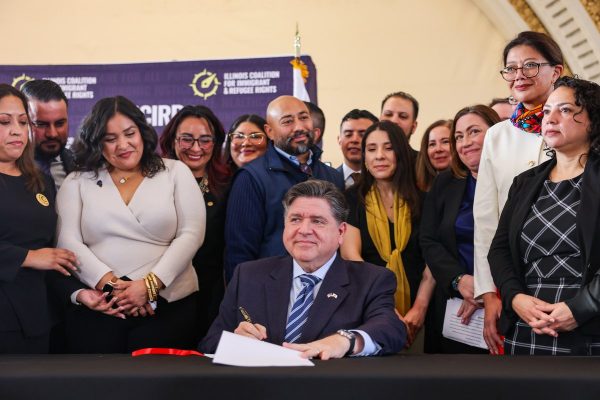Student efforts can lead to greener environment on campus

Feb 26, 2014
Last updated on May 11, 2016 at 07:01 a.m.
Every Monday from five to six p.m., you’ll see a group of students meeting in the Ikenberry Dining Hall Room 2003. These students all have one thing in common — they care about the environment.
I’m part of a campus organization known as ECO-mmunity. My interest in the environment started when I was in the 11th grade, when I took an AP environmental science course. The concept of the carbon footprint left an impression on me. It was fascinating to read and learn about human contribution to the environment and degradation of the environment. I decided to take my knowledge and admiration for environmentally-conscious people to the University.
I found out about ECO-mmunity through my resident adviser, who is an environmental science major. I started researching about the University’s green footprint and sustainability, and was surprised to see that we had a high rating due to the fact that we are such a large university.
Furthermore, there have been many green initiatives in Illinois such as having Leadership in Energy and Environmental Design (LEED) certified buildings and sustainability farms.Despite having so many students that could adversely affect the environment, the University of Illinois ranked a “B” overall on our green report card because of all of our environmental contributions.
Get The Daily Illini in your inbox!
One of the categories that contributes to our overall green report card grade is student involvement. If every student at this University were to adjust some of their daily habits — such as showering for a lesser amount of time, taking buses instead of cars and using reusable water bottles, then our University could probably leave a greater mark in environmental leadership.
I know nowadays most of us do a fairly decent job with sorting our recyclables from the trash, but it takes even more than that. Of course changing our small habits can be difficult, but just like learning to recycle, it will slowly happen if we consciously put effort into it.
ECO-mmunity is trying to enhance students’ understanding of the environment by teaching them concepts and techniques that they probably didn’t know existed. By hosting events such as “Guess Which Water,” which was about having students figure out which water was tap and which was bottled, this organization has raised awareness within some students. Out of over 70 people who participated in this particular event, only three guessed correctly.
The gist of this event was to show students that tap water in Champaign-Urbana and bottled water taste the same, so we should be drinking tap water out of reusable bottles to be more eco-friendly.
These small habits that ECO-mmunity promotes makes students stop and think about their lifestyles and how they can change them. The club’s goal is to retain sustainability and knowledge about the environment amongst students.
One student even mentioned in regards to the “Guess Which Water” event, “I always had this idea that tap water was gross, but I guess it’s the same as bottled water.” ECO-mmunity is making an impact on students by debunking some of their preconceived notions about sustainability. However, despite ECO-mmunity’s efforts, in the end it is about the student who comes up to our booth to try and educate themself that makes the difference — which comes back to personal responsibility.
This club also hosts leadership coalitions, where one can travel and attend seminars in order to work not only on environmental issues, but also on attaining leadership skills. This is a win-win for students as they can educate themselves while practicing what they learn. The application methods they learn can ultimately help them to implement these skills in real life and teach others as well.
ECO-mmunity isn’t the only environmental club on campus and definitely doesn’t have the only people on campus who are interested in the environment. There are many ways one can become exposed to environmentally-conscious thoughts — such as reading articles and informing oneself about the environment and developing environmentally conscious habits. But students can also implement habits by attending campus events such as the ones ECO-mmunity hosts.
By implementing small changes in our daily lives — besides just recycling — we can ensure this campus retains, and goes above and beyond, its current sustainability rating. This, in turn, will set us up as an example for other universities.
The University even has a sustainability website in which you can inform yourself and learn about ongoing events and personal habits to change. It’s the small habits that we can change which count toward living in a greener environment.
Simran is a freshman in Media. She can be reached at [email protected].





